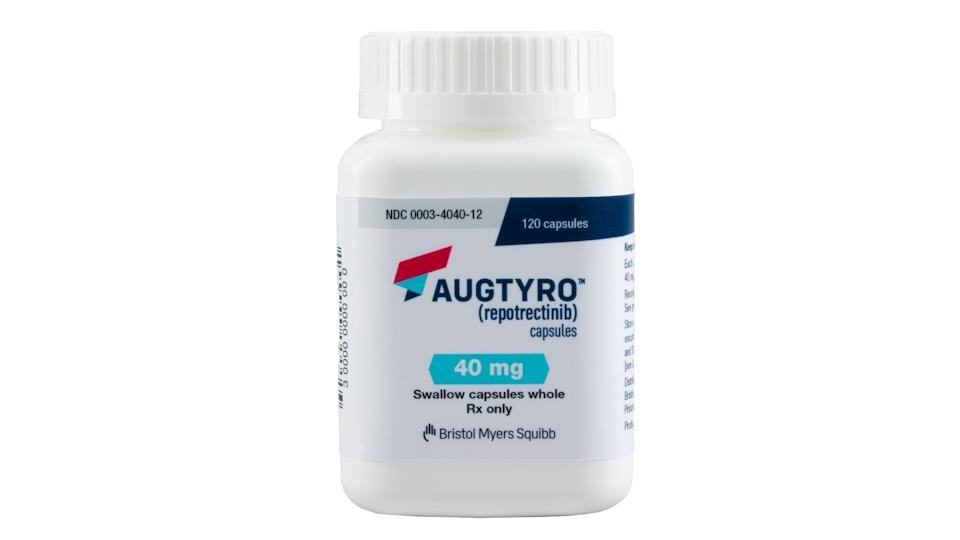FDA widens label for BMS’ cancer drug Augtyro

Bristol-Myers Squibb has claimed FDA approval for a new, tumour-agnostic indication for Augtyro, the cancer drug it acquired as part of its $4.1 billion takeover of Turning Point Therapeutics in 2022.
Augtyro (repotrectinib), which first got a green light from the FDA as a treatment for ROS1-positive non-small-cell lung cancer (NSCLC) last November, has now had its label extended to include all solid tumours that have NTRK gene fusions.
The NSCLC approval was notable because it was ‘line-agnostic’ – meaning Augtyro could be used in both treatment-naïve and previously treated patients, expanding its sales potential as it takes on rival therapies from Pfizer (Xalkori) and Roche (Rozlytrek) in that indication.
BMS claims to have scored again with the latest indication, as Augtyro becomes the only FDA-approved treatment option for NTRK-positive solid tumours with supporting data in patients who have and have not previously received tyrosine kinase inhibitors (TKIs).
Specifically, BMS’ drug can be used in patients aged 12 and over with NTRK-positive tumours that are locally advanced or metastatic, or where surgical resection is likely to result in severe morbidity, and have either progressed following treatment or have no satisfactory alternative therapy.
The accelerated approval is based on overall response rate (ORR) and duration of response (DOR) data from the TRIDENT-1 study. In TKI-naïve patients, Augtyro achieved an ORR of 58%, including 15% complete responses, with the median DOR not reached after nearly 18 months of follow-up. In the pretreated population, the ORR was 50% after 20 months of follow-up, with no complete responses, and a median DOR of just under 10 months.
The new indication puts Augtyro in contention with other therapies for NTRK gene fusion cancers, including Rozlytrek (entrectinib) and Bayer’s Vitrakvi (larotrectinib), which were approved for similar indications by the FDA in 2019 and 2018, respectively.
The two competitors have yet to garner much sales momentum, with Roche reporting sales of around $96 million for Rozlytrek last year – split across its use in ROS-1 NSCLC and NTRK solid tumours – while Bayer doesn’t record sufficient Vitrakvi sales to warrant breaking out the number in its quarterly reporting.
Analysts have suggested that sales of the two drugs have been held back by a lack of testing for NTRK gene fusions, which generally occur in less than 1% of most common cancers such as lung, pancreas, breast, colorectal, kidney, and melanomas.
“Cancer can be frightening regardless of the type, but having a rare gene fusion driving it can be especially stressful and isolating,” commented Susan Spinosa, president and patient co-founder of NTRKers, a patient advocacy group.
“It’s exciting to know that there’s a new targeted therapy option for patients with NTRK-positive gene fusions, as this may offer hope to patients and their loved ones navigating this difficult journey.”
Analysts at William Blair have previously said that Augtyro looks like it could mount quite a strong challenge to the current drugs, with sales of more than $250 million by 2027, assuming it also gets approval in Europe. BMS reported sales were $6 million in the first quarter of this year following its US launch in December.













